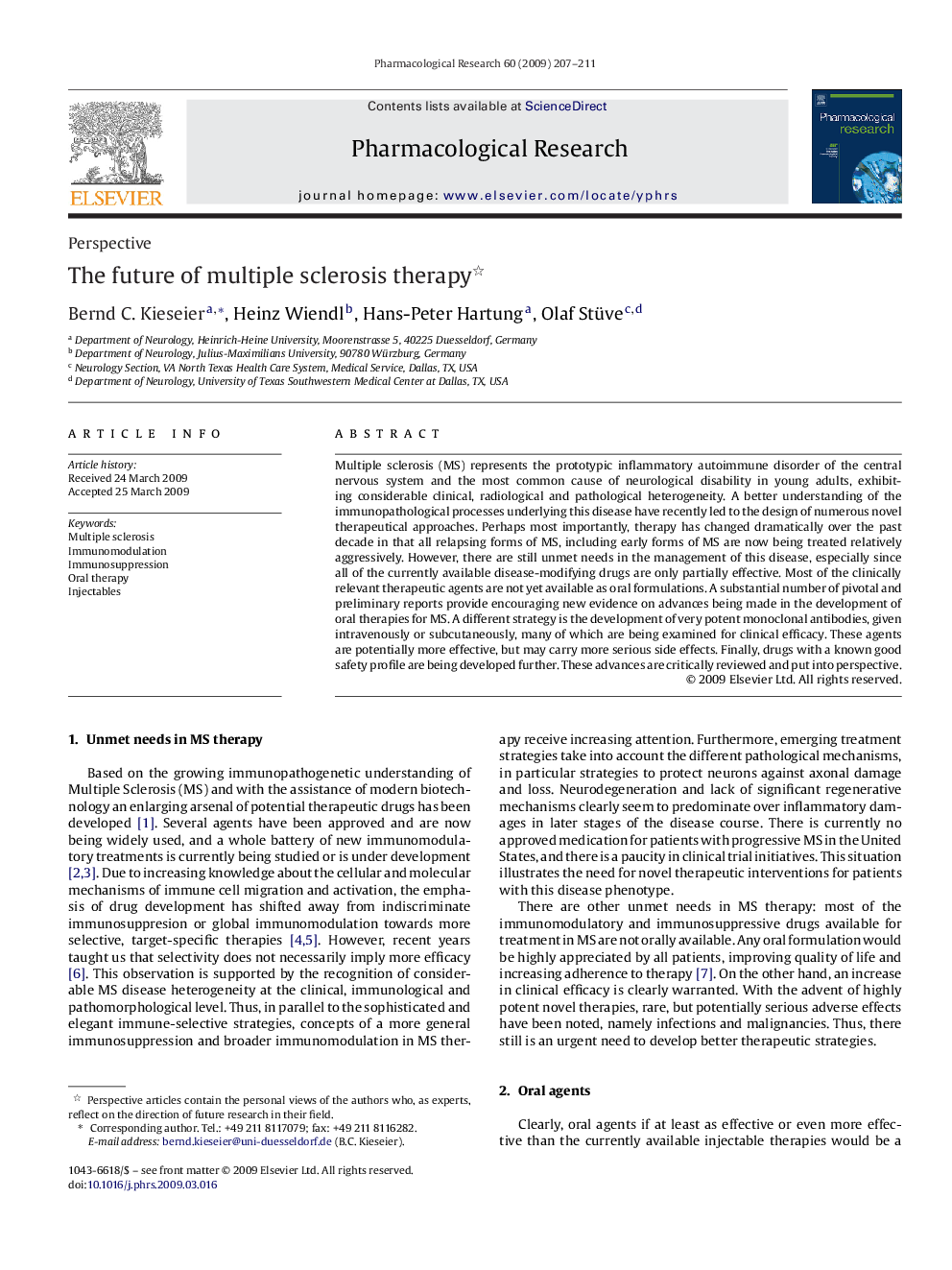| Article ID | Journal | Published Year | Pages | File Type |
|---|---|---|---|---|
| 2562831 | Pharmacological Research | 2009 | 5 Pages |
Abstract
Multiple sclerosis (MS) represents the prototypic inflammatory autoimmune disorder of the central nervous system and the most common cause of neurological disability in young adults, exhibiting considerable clinical, radiological and pathological heterogeneity. A better understanding of the immunopathological processes underlying this disease have recently led to the design of numerous novel therapeutical approaches. Perhaps most importantly, therapy has changed dramatically over the past decade in that all relapsing forms of MS, including early forms of MS are now being treated relatively aggressively. However, there are still unmet needs in the management of this disease, especially since all of the currently available disease-modifying drugs are only partially effective. Most of the clinically relevant therapeutic agents are not yet available as oral formulations. A substantial number of pivotal and preliminary reports provide encouraging new evidence on advances being made in the development of oral therapies for MS. A different strategy is the development of very potent monoclonal antibodies, given intravenously or subcutaneously, many of which are being examined for clinical efficacy. These agents are potentially more effective, but may carry more serious side effects. Finally, drugs with a known good safety profile are being developed further. These advances are critically reviewed and put into perspective.
Related Topics
Health Sciences
Pharmacology, Toxicology and Pharmaceutical Science
Pharmacology
Authors
Bernd C. Kieseier, Heinz Wiendl, Hans-Peter Hartung, Olaf Stüve,
